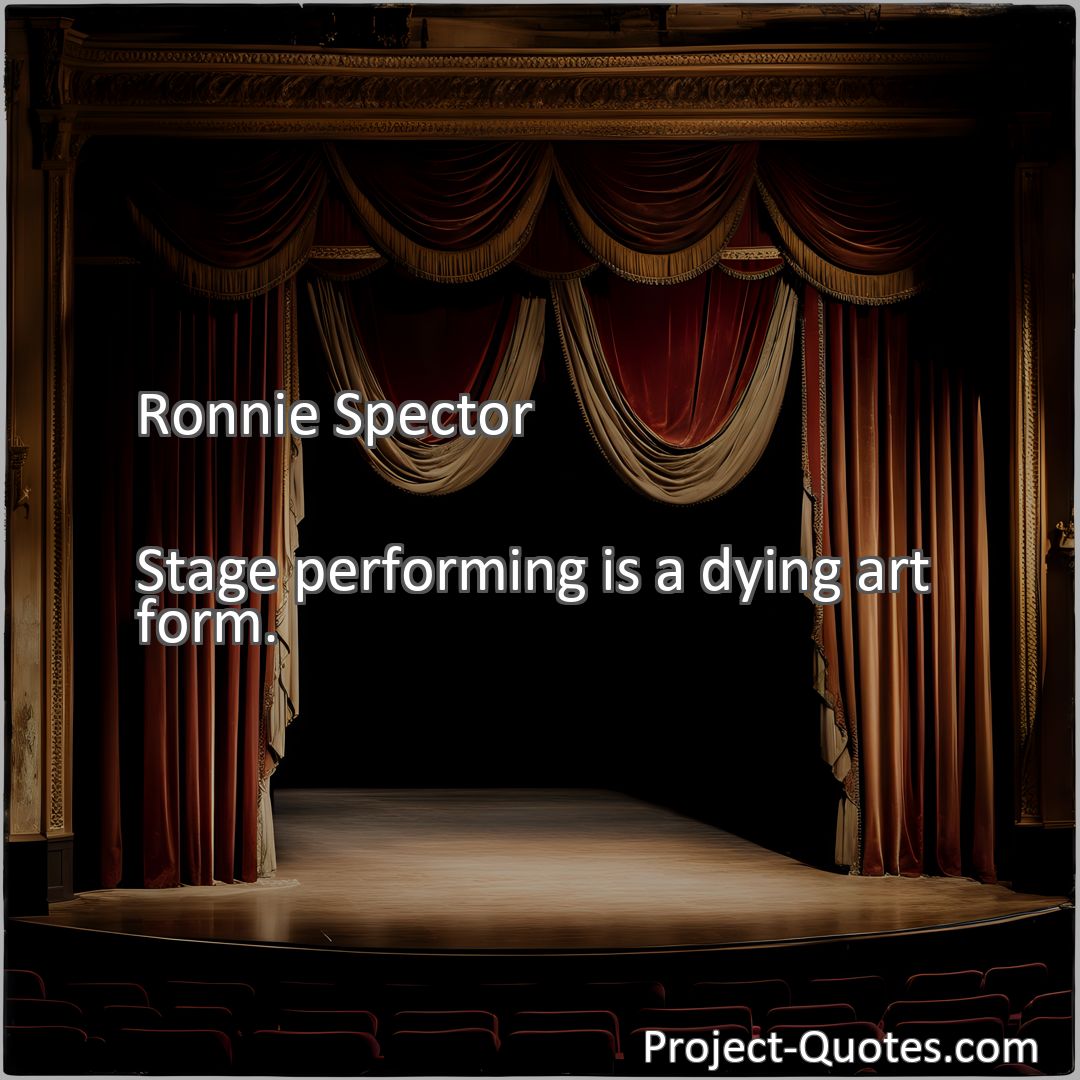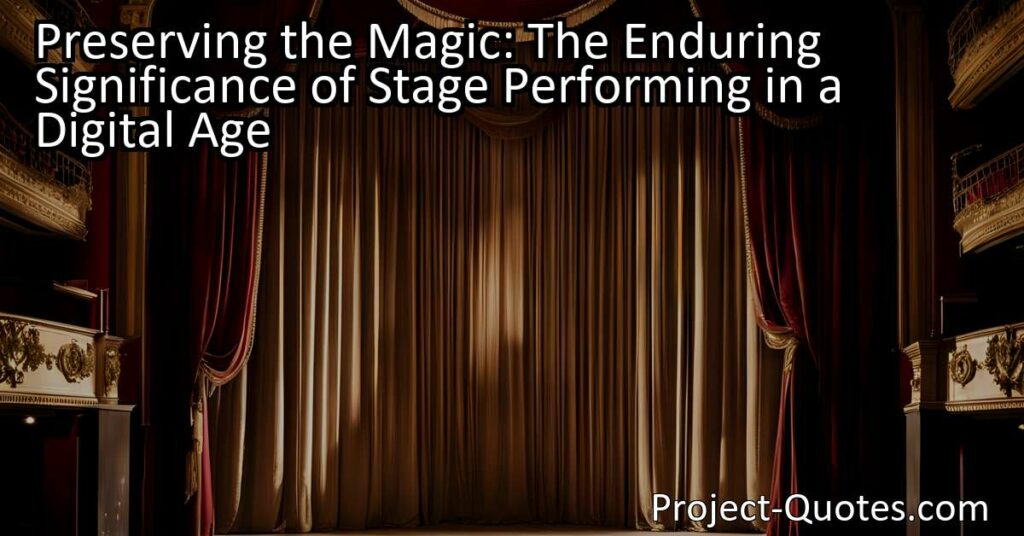Stage performing is a dying art form.
Ronnie Spector
Stage performing provides a unique and transformative experience that cannot be replicated by digital means. The live interaction between performers and the audience creates a sense of unity and excitement, while also fostering empathy and understanding for diverse perspectives. Additionally, stage performances serve as a platform for individuals to express their creativity, build essential skills, and experience healing and catharsis. To preserve the magic of stage performing is to acknowledge its enduring significance in our digital age and ensure that future generations can continue to benefit from its profound impact.
Table of Contents
Meaning of Quote – Stage performing is a dying art form.
The Endangered Art of Stage Performance: A Timeless Craft Worth Preserving
Introduction
Stage performing, a cherished art form that has captivated audiences for centuries, is facing uncertain times in our modern world. Some argue that this age-old tradition is on the decline, giving rise to doubts about its survival. However, this perspective overlooks the enduring magic and cultural significance that stage performances bring to our lives. This article aims to refute the notion that stage performing is a dying art form, highlighting its irreplaceable qualities, the enchantment it creates, and the profound impact it has on both performers and spectators alike.
1. The Historical Significance of Stage Performances
To fully comprehend the importance of stage performing, we must first explore its deep roots in human history. The theatrical arts have been an integral part of many ancient civilizations, serving as a medium for storytelling, cultural expression, and social commentary. From Greek tragedies to Shakespearean plays, stage performances have provided a window into the human condition, celebrating our shared experiences and offering poignant reflections on life’s complexities. Preserving this heritage is essential to maintaining our connections with our past and understanding the evolution of our society.
2. The Uniqueness of Live Performances
While digital advancements and the rise of streaming platforms have revolutionized the entertainment industry, they cannot replace the transformative power of live stage performances. The immediacy and visceral impact of witnessing actors, musicians, and dancers in real-time create a sense of collective experience unparalleled by any other medium. The live interaction between performers and the audience allows for a dynamic exchange of energy, fostering a sense of unity and empathy. Moreover, the sense of unpredictability associated with live performances infuses each show with a distinctive flavor, generating excitement and anticipation.
3. Fostering Human Connection and Empathy
In an increasingly digital and disconnected world, stage performances offer a unique opportunity for meaningful human connection. Attending a live performance enables individuals from diverse backgrounds to share an emotional space, transcending societal boundaries and fostering empathy. Through the stories enacted on stage, we gain insights into perspectives different from our own, expanding our understanding and empathy for others. This ability to touch hearts and minds collectively is crucial in cultivating a more compassionate society where diversity is celebrated, and stereotypes are challenged.
4. Nurturing Creativity and Self-Expression
Stage performing provides an invaluable platform for individuals to explore their creative potential and express themselves authentically. Aspiring actors, dancers, and musicians benefit immensely from the unique learning environment of the theater, where they are encouraged to embrace their imaginations fully. Through the collaborative nature of stage performances, young talents can develop essential skills such as teamwork, problem-solving, and adaptability. Additionally, the act of performing on stage often serves as a catalyst for personal growth, building confidence and self-assurance.
5. The Healing Power of Stage Performances
Stage performances possess a remarkable ability to heal, both for the audience and the performers themselves. Within the embracing atmosphere of a theater, individuals can find solace, catharsis, and a temporary escape from their daily struggles. The beauty of stage performances lies in their capability to generate powerful emotions, offer respite from reality, and create lasting memories that reverberate in the hearts of those present. For the performers, the act of transforming into a character or expressing themselves through music or dance can serve as a therapeutic journey, allowing them to explore their own emotions and connect with others on a deeper level.
Conclusion
Stage performing is an art form that has permeated human culture for centuries, ingrained in our history, and enriched our lives beyond measure. To consider it a dying art form would be a disservice to the immense impact it continues to have on individuals and communities. The magic, unity, creativity, and empathy fostered through stage performances are qualities that we must strive to preserve and celebrate. By cherishing and supporting this ancient craft, we ensure that future generations can continue to experience the unparalleled joy and transformative power of live stage performances.
I hope this quote inspired image brings you hope and peace. Share it with someone who needs it today!


